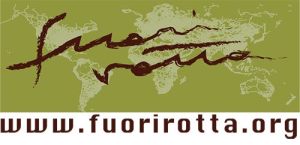Autori
Verdiana Costanzo - Alessandro Marascia
Descrizione

PROGETTO
“VOCI BALTICHE. UNA STORIA CANTATA”
[testo originale]
C’è un Paese che canta da sempre.
È difficile da qui dove noi siamo, nel cuore del Mediterraneo, intercettare le sue voci. Difficile, ma non impossibile. Il Mar Baltico è solo qualche corrente più in là.
Voci Baltiche è un progetto di viaggio che ci porta in Estonia, mossi dal desiderio di indagare una cultura nella quale la musica e il canto hanno rappresentato un’arma infaticabile di rivendicazione politica e sociale. Nel 1991 l’indipendenza dell’Estonia dall’Unione Sovietica viene finalmente restaurata e gli anni che la precedettero vengono ricordati come “La Rivoluzione cantata”.
Il Festival della Canzone Estone (la prima edizione nel 1869), rappresenta infatti l’emanazione più pura ed emblematica dello spirito e dell’identità estoni. Proprio da questi raduni sbocciarono le prime manifestazioni pacifiche di protesta, cantando nella propria lingua quando non era permesso farlo, celebrando i propri testi e la propria poesia mentre il megafono del regime imperversava in ogni dove.
Vogliamo immergerci in questo mondo di canti, ripercorrendo quegli anni cruciali che hanno portato gli Stati baltici a riconsiderare la loro posizione geopolitica, di ponte ambito e proibito fra Est e Ovest.
Questo sguardo al passato, per arrivare al presente.
Oggi l’Estonia guarda all’Europa ed è uno dei Paesi all’avanguardia in digitalizzazione e hi-tech.
Cosa faremo? Oltre alla registrazione live dei canti folklorici più rappresentativi, realizzeremo una serie di interviste indirizzate ai nostri coetanei, chiedendo loro quanto questa eredità culturale significhi oggi e quanto sia stata importante nella loro formazione di individui e cittadini. L’Europa,
la Russia, i Song Festival e gli Erasmus. Da dove si viene? Verso dove si va?
Per farlo abbiamo individuato quattro località e quattro festival che, grazie proprio alla loro forte connotazione folklorica, crediamo possano fornire un fertile terreno d’indagine.
Le tappe saranno :
- Riga, in occasione del XXVI Festival della Canzone Lettone
- Kihnu, isola di 500 abitanti patrimonio dell’UNESCO, in occasione del Festival del Mare
- Viljiandi, cuore della musica folk con il suo Traditional Music Centre e l’annessa biblioteca audio dove è possibile reperire registrazioni, spartiti e materiale informativo. Il Centro è anche sede di un’importante scuola di musica, la August Pulst School
- Värska, al confine con la Russia, dove vive la comunità Seto, minoranza etnica depositaria del “leelo”, arcaica tipologia di canzone.
“BALTIC VOICES. A SINGING STORY”
[English Version]
There’s a country where people have always sung.
It’s difficult from where we are, in the heart of the Mediterranean, to hear its voices. Difficult but not impossible. The Baltic sea is just a few currents over.
Baltic voices is a project for a journey taking us to Estonia. Our desire is to investigate a culture where music and song represent untiring means of political and social claim. In 1991 Estonia finally became independent from the USSR and the years preceding this independence are remembered as the “The Singing Revolution”.
The Estonian Song Festival (first held in 1869) is the purest and most emblematic example of the spirit and identity of Estonians. The first peaceful protests started here, when songs were being sung in their own language, forbidden at that time, celebrating their own lyrics, their own poetry while the regime’s megaphone raged everywhere.
We mean to immerse ourselves in this world of song retracing those crucial years which led the Baltic states to rethink their geopolitical position, as a both sought-after yet forbidden bridge between East and West.
Glancing at the past brings us to the present.
Today Estonia looks to Europe and is at the cutting edge in digitalization and hi-tech.
Apart from live recording of the most representative folk songs, we intend to interview a number of young people, our age, asking them how significant this cultural heritage is to them and how important it has been in making them the individuals and citizens they are today. Europe, Russia, Song Festivals and Erasmus. Where do we come from? Where are we going?
To be able to carry out this research we have selected 4 places and 4 festivals which, thanks to their strong roots in folklore, we believe will furnish fertile ground for investigation.
These are the places:
- Riga, during the XXVI Festival Latvian Song Festival
- Kihnu, an island of 500 inhabitants under UNESCO patronage during the Sea Festival.
- Viljiandi, the heart of folk music with its Traditional Music Centre with its audio library where information, recordings and sheet music can be found. The Centre also houses a famous music school: August Pulst School
-Värska, on the Russian border where the Seto community lives, an ethnic minority, the home of “leelo”, an archaic type of song
TRAILER
GALLERIA FOTOGRAFICA
LUOGHI DI VIAGGIO
